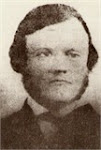A trip to the Monona public library this afternoon had me digging through old editions of the Community Herald as the local paper was known at the time. It turns out the current application and evaluation process is actually consistent with the past practice.
Back in 1981 a vacancy occurred due to the elevation of Bob Olson from the council to mayor in that spring's election. Olson had one year left to serve on his term when he ran for mayor and narrowly defeated Jim Hoelzel. A story in the April 22, 1981 issue of the Community Herald was headlined "Monona requests council applications". The brief piece simply stated that applications should be submitted to the city clerk by April 30 with an expected decision on May 13, 1981.
This vacancy did not occur due to the resignation of Alderman Mike Robbins as has been related. To the contrary, Robbins was one of the losing candidates for re-election in 1981.
A follow-up story in the May 6, 1981 edition related that eight applicants sought appointment to the remaining year of Olson's council term. The May 20th issue reported that the council selected George Seybold to fill out the term by a 3-2 vote. Seybold was indeed the losing candidate with the highest vote total from that spring's election. Seybold was chosen over Bernie Mixtacki on the second ballot. The council split 2-2-1 on the first ballot. On the second ballot Alderman Jim Rothman switched his vote away from James Horkan to Seybold to swing the outcome.
Thus, a review of the record as reported by the local paper shows that the 1981 council used an open application process and evaluated the various candidates on the merits before selecting Seybold. No doubt the fact that the Seybold was the losing candidate with the most votes swayed some of the council members. The point however is that the 1981 council did not simply automatically choose the next-highest vote-getter, but instead went through an open evaluation process - just like we are in 2007.
All that being said, I hasten to add that the rule of legally binding precedent applies only in courts of law. When a high court has laid down a governing principle, lower courts must follow that precedent and even that same high court will generally follow the precedent itself in later cases. The concept of legally binding precedent does not apply in legislative bodies.
That is not to say that the past practice of a legislative body, such as the city council, should be ignored. On the contrary, past practice can be a useful aid in guiding future decisions. The persuasive value of past practice is greater when a practice has been followed repeatedly and frequently over the years and with good results. In some cases, deviation from such an oft-repeated long-standing practice would introduce an element of unfairness.
In the current situation, however, past practice is of limited use given that the most recent instance of the practice occurred some 26 years ago.
***
For the curious the applicants in addition to Seybold, Mixtacki, and Horkan were John Clarke, Wilbert King, Bob Wold, Karen Brookbank, and Karlyn Kamm. The council members were President Mike Mahoney, Kathy Thomas, Rita Wlordarczyk, Hoelzel, and Rothman.
***
As an aside I was bemused to find that some things never change as the paper contained several articles about the need for a city-wide reassessment of property values and the possibility that declining enrollment from Monona would lead to the closure of one of the Monona schools. On the other hand, some things really do change as a photo of a young, well, middle-aged Dean Bowles demonstrated (in 1981 Dean was appointed Deputy State Superintendent of Public Instruction by Bert Grover)!
















If appointing the election runner up was the only correct action for an elected body to take in these circumstances, then state statute would specify this. But it doesn't. It's not the law. Besides, I would hate to see local elected bodies govern by precedent! How would we ever learn from mistakes and how would we ever change things for the better?
ReplyDelete